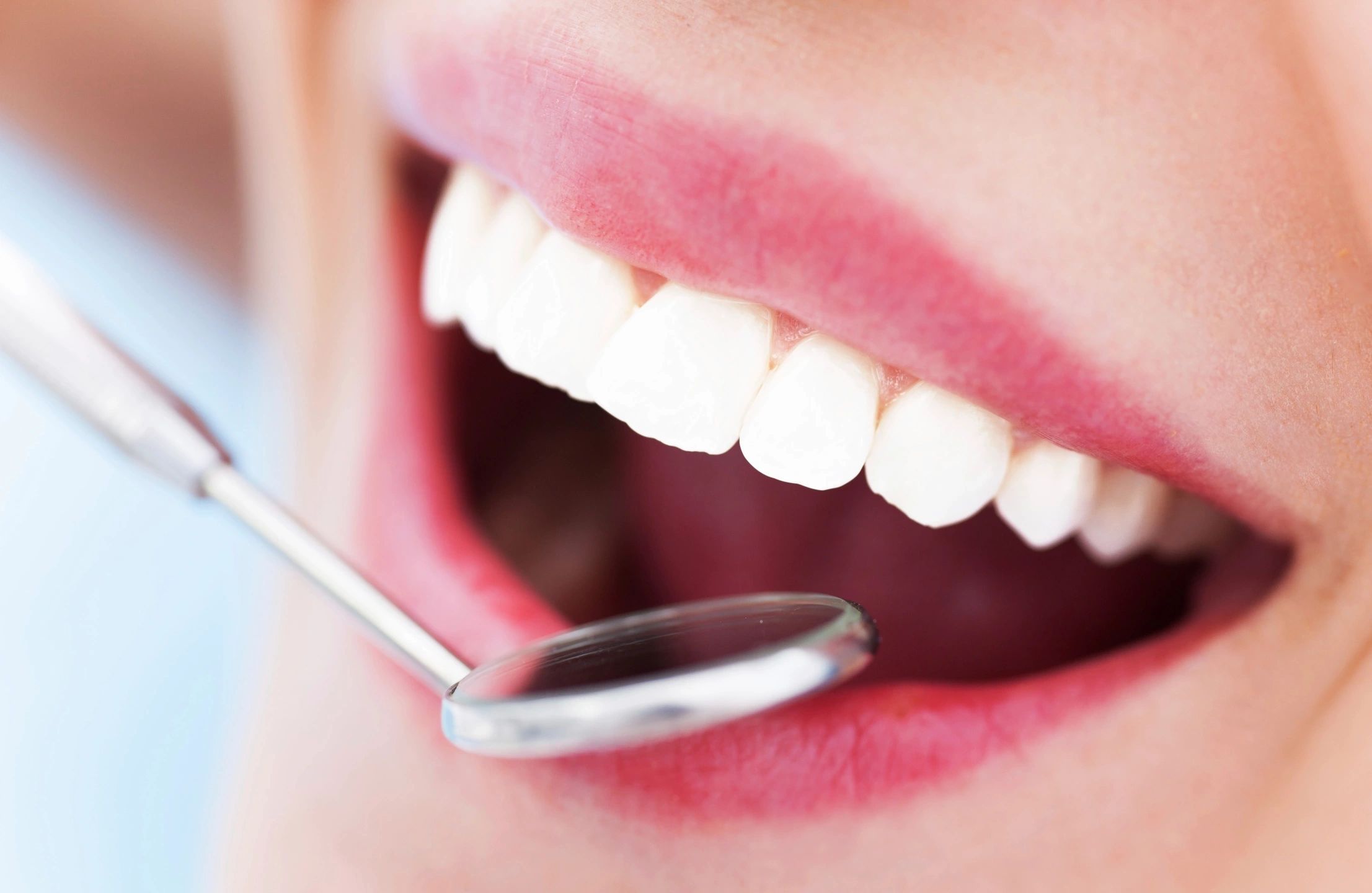Introduction to Dental Health

Introduction to Dental Health
Dr. Claire Arcidiacono, ND
Dental health may not seem like a topic that would come up in an Invite health blog series but here we are talking about dental health! Dental health, or in other words oral health, does not just affect the teeth. In fact, there are numerous chronic conditions associated with poor dental health. But why does this connection even exist? And just what chronic diseases are associated with our dental/ oral health?
To start with the mouth is an important opening to our body. In fact, it is the very start of our digestive system! The digestive tract starts in the mouth, where food enters and ends in the anus where waste products exit. In addition to being the entry point for the digestive tract, the mouth is also the entry point to the respiratory tract. But why does this even matter? You may have heard that the human mouth is full of germs, and this is true. Since the mouth is a major opening to the body it also means that any bacteria in the mouth can enter the body either via the digestive tract or respiratory tract.
These bacteria that are in the mouth can lead to different systemic diseases. Let us start with how oral health can affect our heart health. Oral germs can lead to inflammation and even infections. Studies have found a link between inflammation and infections in the mouth and stroke, clogged arteries, and heart disease. Endocarditis is an infection in the heart that occurs when bacteria travel from one part of the body and end up attaching to the heart. One of the places that is common for these bacteria to travel from is the mouth. (1) In fact, people with gum disease are 28% more likely to have a heart attack than those without dental problems. Studies have also found that those who lack access to dental care as teens have an increased risk of high blood pressure later in life. Additionally, studies have found that those with gum disease are three times more likely to have a stroke that can impair vision. (2) In fact, the bacterium in the mouth is the reason the American Heart Association recommends that in high-risk people, an antibiotic be prescribed prior to dental surgery. (3)
Studies have also found that the bacteria in the mouth can travel to the lungs. This can lead to pneumonia and other respiratory conditions. (1) In fact, gum disease can worsen inflammation in lung disorders such as asthma and COPD. (4)
Oral health can also have negative effects on pregnancy. In fact, periodontitis has been found to be linked to both premature birth and low birth weight. (1) Severe periodontal disease in pregnancy can even lead to an increased risk of miscarriage or stillbirth. (5)
Oral health can also impact your daily life. For example, neglected oral health can lead to chronic pain, discomfort and even trouble eating. Oral health can also affect your ability to speak. Chronic dental pain can make it difficult to concentrate, work effectively and even enjoy daily activities. Dental concerns can lead to self-consciousness, low self-esteem, and even social anxiety. (6)
In addition to hygiene practices there are certain systemic health conditions that can negatively affect oral health. These include diabetes, HIV/AIDS, cancer, Alzheimer’s disease, eating disorders, RA and Sjogren’s syndrome. (1) Even certain medications and foods can affect our oral health. In fact, I will be doing a whole blog just on what foods and medications can affect our oral health.
What can you do to improve your dental/ oral health?
- Make sure to brush and floss your teeth every day. It is also important to see a dentist for regular dental cleanings.
- Eat a healthy, nutrient filled diet!
- If you smoke stop. (1)
- Green Tea has been found to reduce the bacteria and inflammation associated with periodontal disease. (7) Please see Invite’s easy to use Green Tea tincture. This can be used as a swish and swallow! This means you swirl it around in your mouth like you would mouthwash and then swallow!
- Probiotics have been found to improve oral health in just 8 weeks! (8) Please see Invite’s Digestive Probiotic Gummy and Probiotic Hx (available in both 30 capsules and 60 capsules)
- Olive Leaf when used in a rinse has been found to be highly effective at reducing gingivitis. (9) Please see Invite’s Olive Leaf Extract! Feel free to mix 1 capsule into water and use it as a swish and swallow.
- Oral Q10 has been found to help reduce inflammation involved in gum disease. (10). Please see Invite’s Oral Q10.
Our next topic will be Gingivitis and Periodontal disease.
Sources:
- https://www.mayoclinic.org/healthy-lifestyle/adult-health/in-depth/dental/art-20047475
- https://www.carequest.org/about/blog-post/relationship-between-oral-health-and-heart-disease
- https://www.gordonekruegerdds.com/blog/197624-guidelines-for-taking-antibiotics-before-dental-procedures
- https://www.thoracic.org/patients/patient-resources/resources/dental-health.pdf
- https://www.perioprotect.com/pregnancy-periodontal-disease/
- https://www.thespringdental.com/blog/the-ripple-effect-how-poor-oral-hygiene-impacts-your-life/
- https://pmc.ncbi.nlm.nih.gov/articles/PMC3459493/
- https://pmc.ncbi.nlm.nih.gov/articles/PMC10534711/
- https://djm.uodiyala.edu.iq/index.php/djm/article/view/896#:~:text=Results:%20After%205%20weeks%20of,CRP%2C%20ALP%2C%20and%20TP.
- https://www.rdhmag.com/patient-care/article/55240618/the-antioxidant-advantage-coq10s-role-in-fighting-gum-disease
